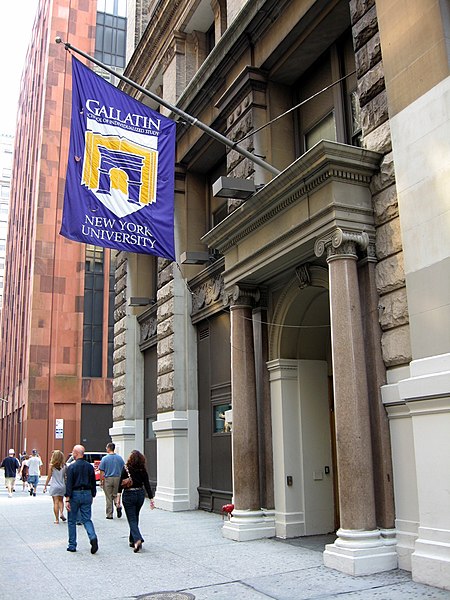Thammasat University students interested in China, India, comparative literature, cultural exchange, soft power, sociology, and related subjects may find it useful to participate in a free 26 January Zoom webinar on States of Disconnect: China-India Literary Relation in the Twentieth Century.
The event, on Friday, 26 January 2024 at 9am Bangkok time, is organized by the School of Chinese, School of Humanities, and School of Modern Languages and Cultures, School of Humanities, University of Hong Kong (HKU).
The event announcement explains:
https://hkuems1.hku.hk/hkuems/ec_hdetail.aspx?guest=Y&UEID=91689
States of Disconnect: China-India Literary Relation in the Twentieth Century studies the breakdown of transnationalism in Chinese and Hindi texts (1900–1965) that express an aversion to pairing ideas of China and India together. Such texts may seem to spell the ends of comparative thought, but “States of Disconnect” shows how literary practice can offer possibilities of relation in the face of insular nationalisms and against globalized habits of thought. The book offers “disconnect” as a critical lens for making sense of severed, interrupted, or absent transnational connection, and for finding in such moments an ethics of relation.
The speaker will be Assistant Professor Adhira Mangalagiri, who teaches comparative literature at New York University, the United States of America.
The moderator will be Assistant Professor Alvin K. Wong of the Department of Comparative Literature, HKU
The TU Library collection includes several books about different aspects of China-India literary exchange.

The book by Assistant Professor Mangalagiri, States of Disconnect: China-India Literary Relation in the Twentieth Century, is available to TU students through the TU Library Interlibrary Loan (ILL) service.
According to the publisher’s description,
In an interconnected world, literature moves through transnational networks, crosses borders, and bridges diverse cultures. In these ways, literature can bring people closer together. Today, as hopes for globalization wane and exclusionary nationalism is on the march, can literature still offer new ways of relating with others? Comparative literature has long been under the spell of circulation, contact, connectivity, and mobility—what if it instead sought out their antitheses?
States of Disconnect examines the breakdown of transnationalism through readings of literary texts that express aversion to pairing ideas of China and India. Focusing on practices of comparison, Adhira Mangalagiri considers how these texts articulate the undesirability or impossibility of relating with national others, tracing portrayals of violence, silence, and distance. She proposes the concept of “disconnect”: a crisis of transnationalism perceptible in moments when a connection is severed, interrupted, or disavowed. Despite their apparent insularity, texts of disconnect offer possibilities for relating ethically across national borders while resisting both narrow nationalisms and globalized habits of thought. Reading a variety of largely untranslated twentieth-century Chinese and Hindi short stories, novels, and poems, Mangalagiri develops three new strategies for comparison—friction, ellipses, and contingency—that together comprise a critical vocabulary of disconnect. Foregrounding transnationalism’s discontents, States of Disconnect offers a different path by which literary texts can cultivate a critical sensibility for making sense of a world rife with division.

One reviewer noted:
How does one conduct comparative study under hostile conditions, when (as is now the case across the globe) nation-states retreat inward and sever, reject, or deem undesirable transnational connections? This question, as much an ethical as a methodological one, lies at the heart of Adhira Mangalagiri’s excellent first monograph. Through careful and incisive readings of Hindi- and Mandarin-language literature produced during episodes of disconnect (her term for a “crisis of transnationalism,” when the nation-state turns away from national others [p. 1]) in the relation between India and China over the first six decades of the twentieth century, States of Disconnect presents a compelling case for using the tools of comparative literature to examine these situations and find in them new means of engaging openly and ethically with the other.
Mangalagiri argues that disconnect is not merely the antithesis of connection, but a distinct condition that “gives rise to its own particular logics of relation” (p. 193). It is thus “as much a crisis of aesthetics and hermeneutics as it is one of collective political life,” for which literary texts offer productive sites of engagement (p. 2). This realization permits two important interventions—one disciplinary, the other methodological. The first is to widen the scope of humanistic scholarship. If, as Mangalagiri observes, humanistic disciplines have tended to focus on “‘friendly’” exchanges between states and peoples while relegating “‘unfriendly’” interactions to the social sciences, attention to disconnect in literature brings these conflictual connections into the ambit of humanistic study (p. 19). Her second intervention is in developing critical reading strategies for apprehending disconnect ethically. She argues that “attending to the affordances of literature, the intricacies of imagination and interpretation, makes possible an ethics of transnational relation when none seems at hand” (p. 2). This ethical approach involves reading practices that reaffirm “a commitment to the nation’s others” by directly confronting the challenges disconnect poses to the open ethos of comparative work without “reproducing either the exclusionary logic of the nation-state or the unequal systems of globalization” (p. 22). […]
In this way, States of Disconnect offers a highly original contribution to the study of Indian and Chinese history and literature. Its novel methodological approach to a gravely relevant but previously underexamined topic will make this book of great interest to literary scholars. Mangalagiri’s engaging but often dense prose and more radical textual readings may prove a slight hurdle for nonspecialists, but students of South and East Asian history and culture will nevertheless find much to appreciate in her accounts of neglected histories and personages, as well as her elegant renderings of passages from many formerly untranslated Hindi and Chinese texts into English. Deeply serious in its disciplinary-cum-ethical commitments and confident in the possibilities afforded by critical reading to work through and against tendencies that would undermine the aims of comparison, States of Disconnect is ultimately as inspiring as it is generative.

Another reviewer observed:
States of Disconnect is firmly anchored in the fields of comparative literature and postcolonial studies. It shares a number of important assumptions and perspectives that are often found in these two closely interrelated disciplines. First, the nation-state is a homogenizing and oppressive power and as such should be combatted by reflecting on the transnational. Moreover, the conflict between the nation-state and transnationalism is a question of the first order that fundamentally defines modern existence. These assumptions are evident in the book, which emphatically claims its inheritance of “comparative literature’s keen attunement to the limits of national categories and nation-based epistemologies” and appears to interpret every text in the framework of the opposition between nation-state and transnationalism.

(All images courtesy of Wikimedia Commons)

